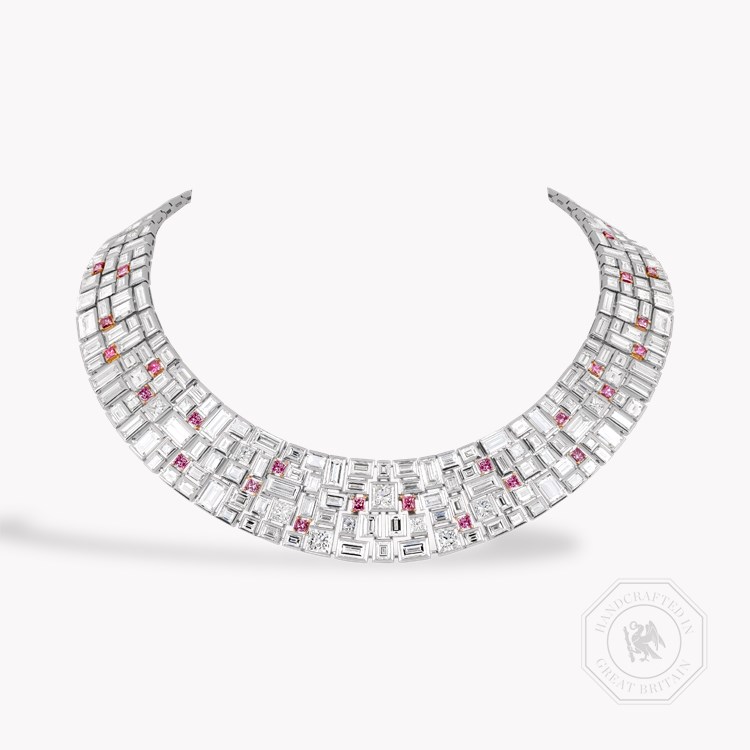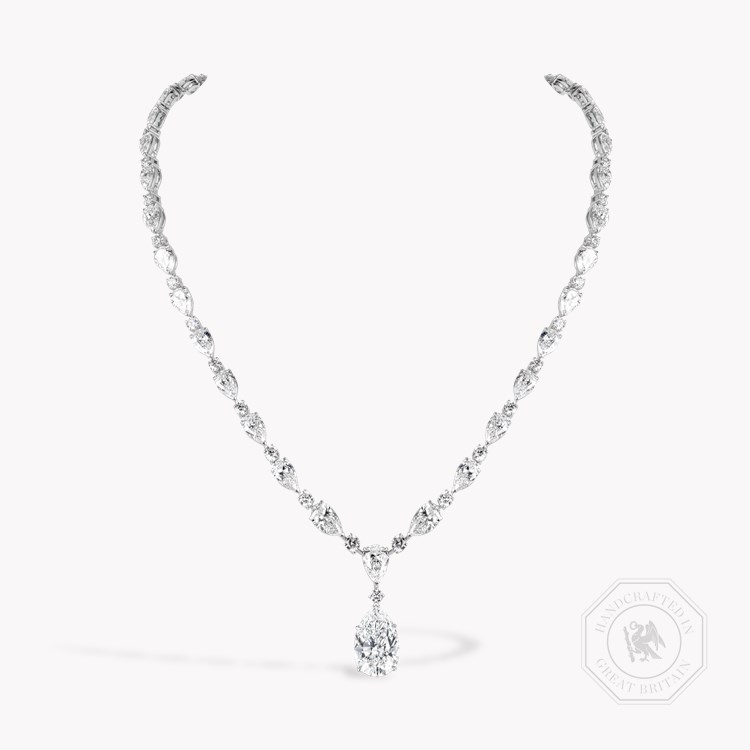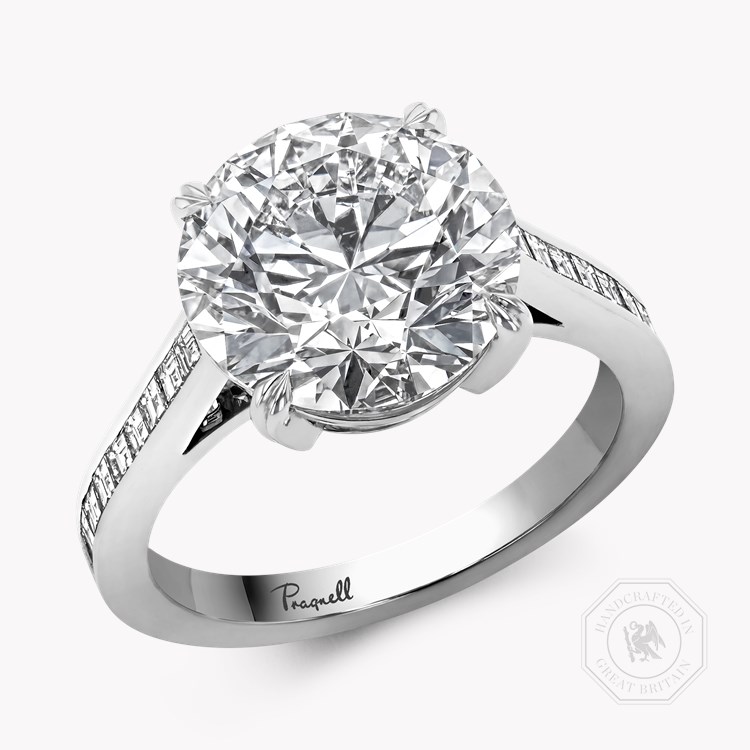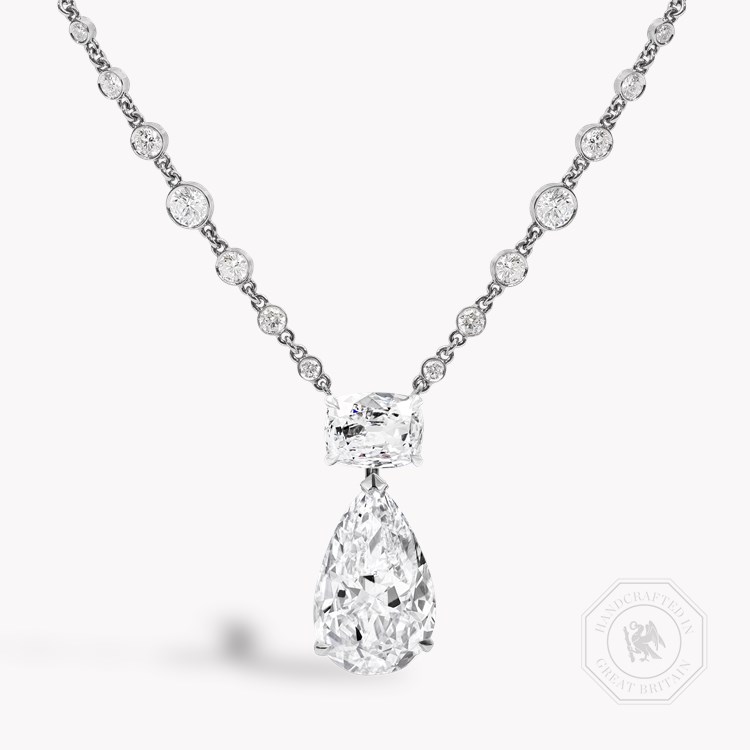Diamond Certification: A Complete Guide
Buying a diamond is an important investment, so understanding diamond certification ensures your choice is informed, transparent, and confident. Whether you’re selecting an engagement ring, a future heirloom, or a diamond for your personal collection, certification helps verify quality and authenticity — two qualities at the heart of every Pragnell piece.
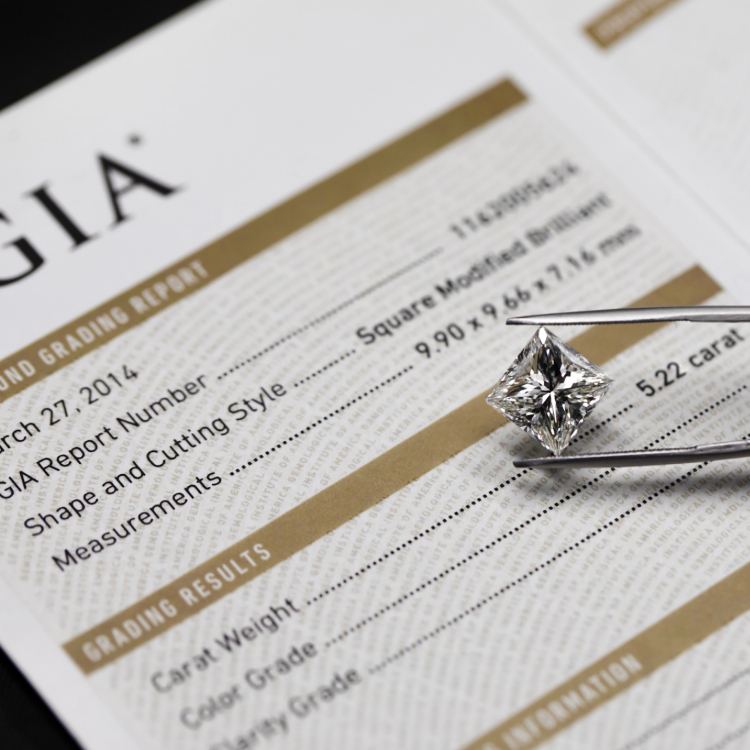
What is a Diamond Certificate and Why Does it Matter?
H2 What is a Diamond Certificate and Why Does it Matter?
A diamond certificate (or grading report) is an independent document issued by a specialist gemmological laboratory. It outlines a diamond’s defining qualities, including the 4Cs — Cut, Colour, Clarity and Carat Weight.
Learn more about each of the 4Cs:
• Cut
• Colour
• Clarity
• Carat Weight
Certification ensures your diamond has been assessed impartially using internationally recognised standards. Many Pragnell pieces include reports from world-leading laboratories, and all are created using ethically sourced diamonds.
.jpg)
What Should I Look for in a Diamond Certificate?
A high quality diamond certificate should clearly outline:
1. The 4Cs
The foundational grading criteria that determine value and beauty.
2. Shape & Cut Style
Round brilliant, oval, pear, emerald, cushion — the certificate will specify the shape and cut style, which influence appearance and sparkle.
3. Inclusions & Blemishes
A plotted diagram may show internal and external features, giving insight into clarity.
4. The Laboratory Issuing the Report
Reputable laboratories follow strict, impartial grading practices.
These reports help you assess the diamond and can guide your decision when shopping for diamond jewellery.
What is the Best Diamond Certification?
While several laboratories offer grading services, not all are equal. The most respected include:
• GIA (Gemological Institute of America) — the global gold standard
• IGI (International Gemological Institute) — widely used and respected
• HRD Antwerp — highly regarded in Europe
• AnchorCert (Birmingham Assay Office) — reputable UK specialist
A certificate from any of these institutions ensures trustworthy, consistent grading.
-(1).jpg)
The Significance of the 4Cs in Diamond Certification
Each of the 4Cs plays a vital role in how a diamond looks and how it is valued:
Cut: Determines how effectively the diamond reflects and refracts light.
Colour: Graded from D (colourless) to Z (light yellow/brown) — the less colour, the rarer.
Clarity: Fewer inclusions and blemishes increase beauty and value.
Carat Weight: Larger stones are rarer, but beauty depends on the balance of all four factors.
For an in depth explanation, explore our full Diamond Guide.
What Details Are Not Included in a Diamond Certificate?
Even the best certificates focus on objective attributes. They do not measure:
Aesthetic Appeal
Beauty and preference vary from person to person.
Emotional Value
Sentimental significance cannot be graded.
Diamond Origin
Unless specified by the lab, the certificate does not guarantee where the diamond was mined.
These elements require trust in your jeweller — something Pragnell’s heritage and expertise provide.
What Insurance do I Need for Certified Diamonds?
Certified diamonds often carry higher value, making appropriate insurance essential.
A specialised jewellery policy can cover loss, theft, accidental damage, and travel.
Include your diamond’s certificate when insuring — it provides the detailed proof required for full coverage.
For tailored advice, speak to a member of our showroom team.
-(1).jpg)
How Diamond Certification Affects Pricing
Certification offers reassurance about a diamond’s characteristics, making buyers more confident in its quality. Because certified stones are accurately and transparently graded, they typically command higher market value.
Certification & Resale Value
A certified diamond is easier to resell or trade because prospective buyers understand exactly what they’re purchasing. This makes certification an important factor for long term value.
Common Misconceptions About Diamond Certification
“All diamonds are certified.”
Not all diamonds come with certificates — especially smaller stones or older vintage pieces. Certification costs can exceed the value of some diamonds.
“Certification guarantees perfection.”
A certificate describes quality; it doesn’t promise flawlessness.
Vintage and branded pieces may include certificates of origin rather than modern grading reports. At Pragnell, all pieces are assessed by qualified in house graders to ensure accuracy.
.jpg)
Shop Certified Diamonds at Pragnell
Certified diamonds offer clarity, confidence, and lasting value. At Pragnell, our pieces are hand selected for exceptional quality and accompanied by reports from the world’s most respected laboratories.
Explore our collection of Diamond High Jewellery
Frequently Asked Questions
Below are the answers to our most commonly asked questions. Should you want to find out more please feel free to Contact Us and begin your Pragnell experience.
Jewellery CLP Page
Contact us-(1).jpg)
